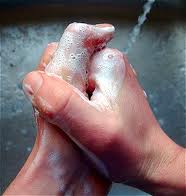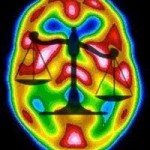I said I’d use the next few posts to share what I learned at a recent conference on behavioral addictions. I should emphasize that the conference, held in Budapest, was billed as the the First International Conference on Behavioral Addictions. The idea that gambling, hypersexualized behavior, eating disorders (including obesity), and internet addictions are in fact addictions is quite new, and even today there are many professionals, policy-makers, and researchers who bristle at the thought.
Think for a moment about the implications. If the medical world accepts, say, internet addiction and eating problems as addictions, requiring treatment, then insurance companies in the U.S. will go bust within weeks. Not that they don’t deserve it. If internet use is an addiction, then how do parents and teachers moderate kids’ internet use? Almost nobody would claim that internet use should be forbidden, yet, if it’s addictive, then shouldn’t it be tightly controlled? These are just a few of the problems society will face when behavioral addictions are acknowledged as addictions.
I say this as if the matter is resolved. Well, it is for me. I saw enough evidence in those two days at the conference to convince me, beyond a doubt, that behavioral addictions not only resemble substance addictions in “real life” but also arise from the same brain processes.
The most convincing parallels between substance and behavior addictions start by recognizing their common denominator: compulsion. When gambling is considered an addiction, it’s called compulsive gambling. Eating disorders including binging and bulemia are often  discussed as compulsive. The same goes for sex addiction and a few other things. Then we cross the line into substances. Smokers smoke compulsively, alcoholics drink compulsively, and as for drug addiction,the National Institute on Drug Abuse defines it as characterized by “compulsive drug seeking and use.” In my last few posts, I’ve described a set of stages in the onset of addiction (and addictive acts), and the final stage is compulsion. So, if we are seeing evidence of a common denominator underlying both substance and behavioral addictions, both in people’s behavior and in their brain mechanisms, then the defense rests.
discussed as compulsive. The same goes for sex addiction and a few other things. Then we cross the line into substances. Smokers smoke compulsively, alcoholics drink compulsively, and as for drug addiction,the National Institute on Drug Abuse defines it as characterized by “compulsive drug seeking and use.” In my last few posts, I’ve described a set of stages in the onset of addiction (and addictive acts), and the final stage is compulsion. So, if we are seeing evidence of a common denominator underlying both substance and behavioral addictions, both in people’s behavior and in their brain mechanisms, then the defense rests.
 Interestingly, the most fundamental behavioral addictions are the individual actions people perform repeatedly when they suffer from OCD (obsessive-compulsive disorder). When you wash your hands or check the stove 50 – 100 times a day, that’s a behavioral addiction! So a number of speakers at the conference directly compared the behavioral and neural portrait of OCD with both/either drug and/or behavioral addictions.
Interestingly, the most fundamental behavioral addictions are the individual actions people perform repeatedly when they suffer from OCD (obsessive-compulsive disorder). When you wash your hands or check the stove 50 – 100 times a day, that’s a behavioral addiction! So a number of speakers at the conference directly compared the behavioral and neural portrait of OCD with both/either drug and/or behavioral addictions.
Naomi Fineberg, a well-recognized researcher in this area, sees OCD as the archetypical compulsive disorder: People with OCD can’t inhibit impulses, they show low cognitive flexibility, and narrow, limited goals. She uses a button-pressing task in which the “reward” is turning off a mild electric shock. After training on the task, the reward is withdrawn. From that time on, pressing the button accomplishes exactly nothing. Yet compulsives keep on pressing the button. Ordinary people do not. Compulsives report that they keep on pressing simply because they feel the “urge” to do so. Sound familiar? Sound like addiction? She concludes that OCD is not about repeating a behavior to get a reward — nothing good is anticipated. Rather, actions are performed to avoid “punishment” — the negative consequences of not doing something. And the negative consequence may simply be the build-up of anxiety. I’d say it’s very much the same with addiction.
 Dr. Fineberg also talked about her neuroscience research. OCD “patients” (I hate that term, but that’s what they call them) and stimulant (e.g., coke and meth) addicts show a host of similarities in the scanner. The ventral regions of the prefrontal cortex (such as the orbitofrontal cortex) are where emotional meaning grows and solidifies over time, and these regions show reduced connections with more dorsal areas involved in self-control. So the brain becomes less capable of exerting self-control.
Dr. Fineberg also talked about her neuroscience research. OCD “patients” (I hate that term, but that’s what they call them) and stimulant (e.g., coke and meth) addicts show a host of similarities in the scanner. The ventral regions of the prefrontal cortex (such as the orbitofrontal cortex) are where emotional meaning grows and solidifies over time, and these regions show reduced connections with more dorsal areas involved in self-control. So the brain becomes less capable of exerting self-control.
Giacomo Grassi, from the University of Florence, talked about OCD and addiction as caused by “reward dysfunction” — a condition that starts out with anxiety but ends up as a behavior problem, becoming “addicted to compulsion” as he calls it. Dr. Grassi’s brain scan images showed that OCD patients have higher activation of the amygdala (the centre for emotional conditioning) and lower activation of the nucleus accumbens (or ventral striatum — the brain centre for motivated reward-seeking) — a pattern repeatedly shown in addicts as well. He also demonstrated a shift in activation from the nucleus accumbens to the dorsal striatum as compulsions set in, just as I discussed two posts ago as the final stage of addiction.
So we could say that OCD is the pure form — the grand-daddy syndrome — in which people fall into loops that are no longer rewarding, just difficult to turn off. Substance addictions and behavioral addictions are two derivatives or variants of that form. Two lines of descendants — its offspring. Substance addictions and behavioral addictions look the same, sound the same, smell the same — common sense suggests that they are, at least, very close cousins.
Leave a Reply to George Cancel reply